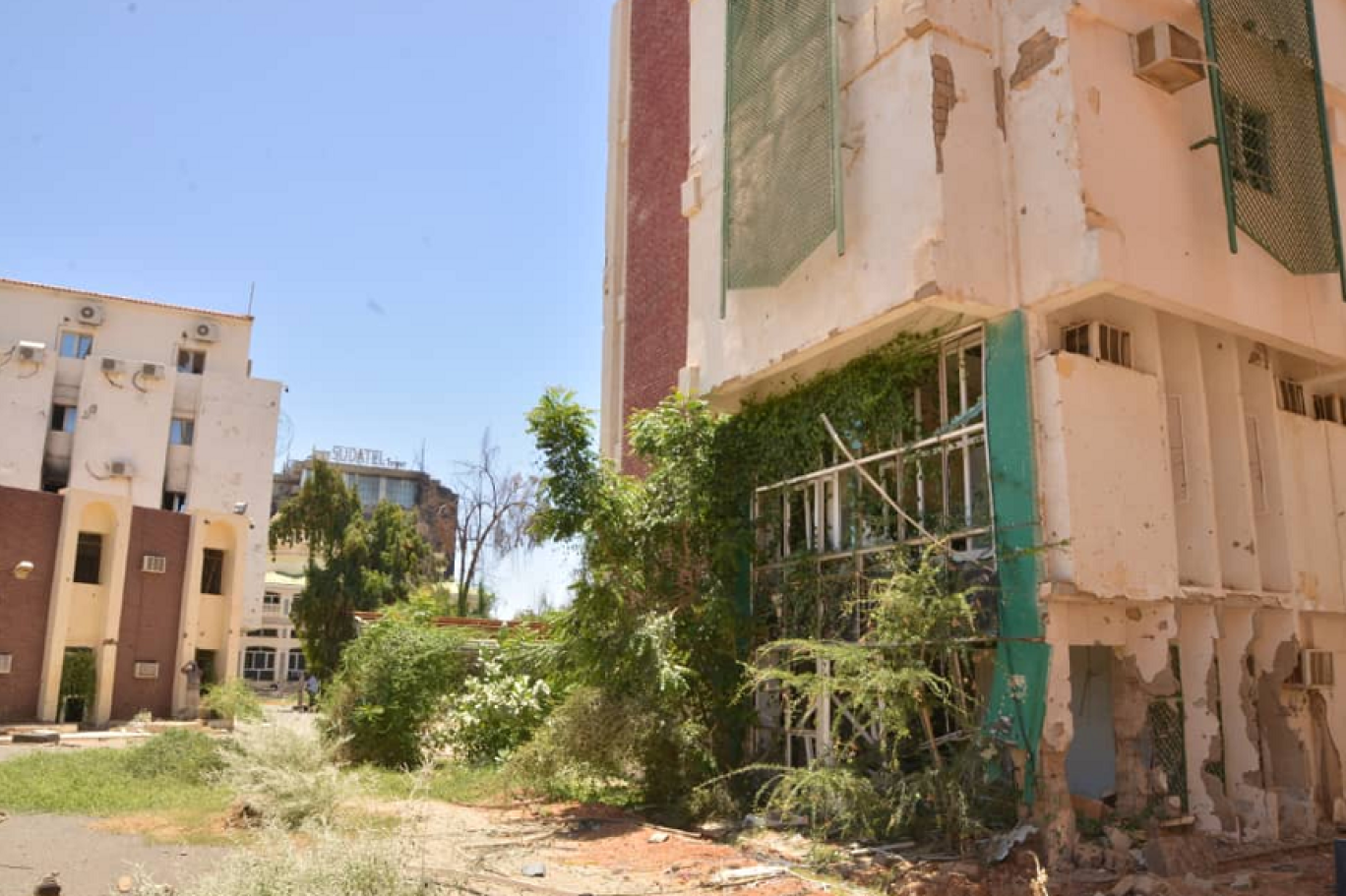Sudan’s real estate market—particularly in the capital Khartoum and its three cities, Bahri, Omdurman, and Khartoum—has plunged into an unprecedented state of stagnation. There is a surge in the supply of houses and residential plots, yet almost no demand for purchases.
Before the war between the army and the Rapid Support Forces (RSF) erupted in mid-April 2023, properties in the capital were considered attractive investments for expatriates, businesspeople, and foreigners, offering a safe way to preserve capital. However, the war’s economic toll, compounded by the continual decline of the national currency, has dealt a severe blow to the sector and dragged down prices.
Several factors have driven citizens to sell their homes—whether in upscale neighborhoods or poorer districts—despite the great sacrifices invested in building them. These include the persistence of war with no sign of an end, the massive destruction that has reduced homes’ value, and the desire to move to remote or safer states, buy property in neighboring countries, or redirect capital toward investment. Most owners also lack the financial capacity to rebuild or repair damaged properties.
The central question now is: what lies ahead for Sudan’s real estate market—particularly in Khartoum—amid the flood of properties for sale and the absence of buyers, even though prices have plunged to historic lows?
—
A Difficult Decision
Citizen Al-Tayeb Abdelrahman, from the Al-Fitehab district of Omdurman, said:
> “In my view, the hardest decision a person can make is to sell their home. A house carries emotional ties and a sense of family stability, which makes letting go of it almost impossible.”
He explained that the devastation of his family home after a long displacement journey left them with no choice:
> “We returned to find extensive damage, cracks, and structural splits in the walls. After much thought, we realized selling was the best option. But when we visited real estate offices, we found prices had collapsed. Post-war property valuation is now done at a glance, and brokers are taking advantage of desperate homeowners.”
Abdelrahman added that his aim in selling was to move to a remote area and invest part of the money in a small project to generate income. “Before the war, the house was worth 500 million Sudanese pounds (about $135,000), but now, due to the dire circumstances, it’s down to 350 million ($100,000),” he lamented.
> “Every house listed for sale now carries a tragic story. Properties are flooding real estate offices, but there are no willing buyers.”
—
Multiple Obstacles
According to Kamel Abdelmonem, a real estate office owner in Omdurman:
> “Our offices are seeing a surge in people wanting to sell properties—houses and plots alike—especially those severely impacted by the war or facing financial crises. Many are relocating to rural villages north of Omdurman, citing lower costs and safety, or opting for smaller homes while using the remaining funds for investments.”
But he stressed that selling faces numerous obstacles:
Falling home prices, making real estate investment unsafe.
Heavy financial losses for those insisting on selling, especially in central Khartoum near active combat zones.
A total collapse of the real estate market as supply skyrockets while demand shrinks.
Inflation, currency depreciation, and citizens’ weak purchasing power, which restrict sales to cases of extreme necessity.
> “Even then, there are simply no buyers,” Abdelmonem concluded.
—
Vanishing Advantages
Engineering expert Al-Shafi’i Hassan explained that pre-war property values depended on location, design, and construction quality. Upscale neighborhoods like Riyadh, Manshiya, and Taif in East Khartoum once commanded prices rivaling major world capitals, with plots selling for $1,200–$1,400 per square meter.
Now, he said, those values have collapsed to around $800 per square meter, while middle- and low-income areas of Omdurman and East Nile have also seen houses listed at rock-bottom prices as residents seek to flee unsafe zones.
> “Security instability and the collapse of basic services such as electricity and water are clear signs that the real estate market in Khartoum will only get darker,” Hassan warned.
He predicted a growing demand for properties in safer states, as many displaced residents who fled Khartoum before the war may never return.
—
Warnings and Interventions
Economic analyst Mohamed Al-Nair described Khartoum’s falling prices as inevitable:
> “The war has directly affected home values, and current prices are unrealistic considering the destruction of infrastructure such as electricity and water. Under these conditions, buying or selling is nearly impossible.”
He advised citizens not to sell their properties:
> “Homes are being sold below their real worth. The state has also imposed restrictions on transferring assets, which is a wise move in these extraordinary circumstances. Once the war ends, the situation will become clearer, and prices could return to pre-war levels.”
Al-Nair also warned of possible foreign schemes targeting citizens’ properties to displace them permanently:
> “People must be cautious, as Sudan’s real estate sector will eventually recover and become lucrative again.”
—
Paralysis and Difficulties
Economist Ibrahim Onour added:
> “Since the war broke out, Khartoum’s real estate sector has been paralyzed. Liquidity is scarce, families prioritize survival over investments, and insecurity prevents people from even reaching properties. Legal documentation offices and lawyers—essential for sales—have also ceased operations.”
He stressed that neighborhoods that became battlegrounds have lost nearly all property value:
> “Unless Sudan’s crisis is resolved, real estate investment will remain at risk of total collapse.”
